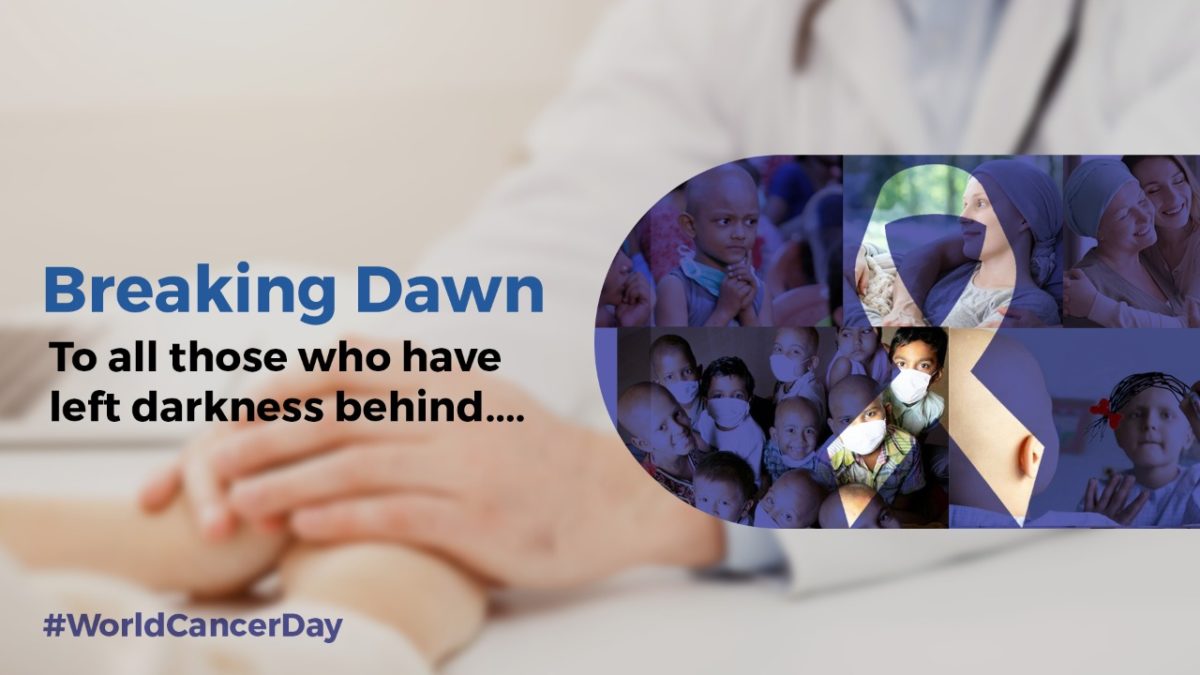Breaking Dawn

Of all diseases that have afflicted mankind since the dawn of time Cancer, even today continues to baffle us.
While evidence of Cancer in humans has been demonstrated a million years ago and a case recorded in Egypt in 3000 B.C., the first scientific description of its nature and behaviour is from the work of Virchow, a German physician, who in the nineteenth century devoted a lifetime to the study and understanding of leukaemia (blood cancer). With time, other cancers were also recognized and effective treatments developed, but what initiates the process and its relentless progress is often less understood.
What is it about the disease that creates a feeling of fear, despair and uncertainty on one hand and also instils a degree of hope and arouses our fighting spirit and survival instincts?
These are the facts:
- Despite a century of research the causes, behaviour and outcomes of treatment often is a mystery. While we know enough to treat and cure a significant percentage of those diagnosed, much about the disease is still largely unknown. And often it is the unknown or the lesser-known that creates fear and anxiety than the known.
- If one looks dispassionately at the facts – heart disease or kidney failure kill as large a percentage of those affected in a period of five years as cancer does – the disease is not more fatal than many others but the stigma attached to a diagnosis of cancer makes it one of the most dreaded of the major illnesses. This is partly due to the erroneous belief, even in educated circles, that a diagnosis of cancer means certain death. This was true a century ago, but not today. With modern treatments nearly half of those diagnosed with cancer live to their normal life-spans. It is the stigma associated with the disease that causes many to keep their affliction under wraps and why most high-profile and public figures in the country seek treatment abroad.
- The lurking fear of a relapse constantly preys on the survivor’s psyche permeating the mind, body and soul. Despite an external façade of composure, there is often an emotional turmoil raging on in the mind of the affected. On the positive side, while many chronic diseases such as hypertension, diabetes, heart disease etc require a lifelong dependence on medication and lifestyle changes even after diagnosis and treatment, in cancer once a cure has been achieved, a regular follow up is all that is generally sufficient.
- There often is a conflict regarding the best line of treatment for many cancers. Cancer is not a single disease but a complex group of conditions ranging from the highly curable to the universally fatal. Accordingly, the treatment processes are complicated and often confusing for the average person. New trials, newer drugs and treatments add to the already exhaustive list with marginal improvements in control and cure. As an oncologist myself I find it extremely challenging to sometimes decide upon the right treatment for a cancer that is not in my area of specialization.
However, cancer can be a life-changing experience for those who survive, providing a fresh perspective and an opportunity to re-examine life and make it more fulfilling. When the darkness of the diagnosis, treatment and relapse has lifted, it could be the dawn of a new life. Many have told me that once they have come out of the initial despondency and the gloom of doom, their lives has been enriched by the experience.
On World Cancer Day, I take the opportunity to salute all those individuals who have overcome this malady and begun a life full of hope, promise and belief.
CLICK HERE TO RECEIVE FUTURE BLOGS

One comment
Nam
February 5, 2021 at 6:45 pm
One of the best articles I’ve read in recent times combining fact and faith. Hats off to the work you do and hope the stigma decreases over time with this as with so many other issues around well-being.